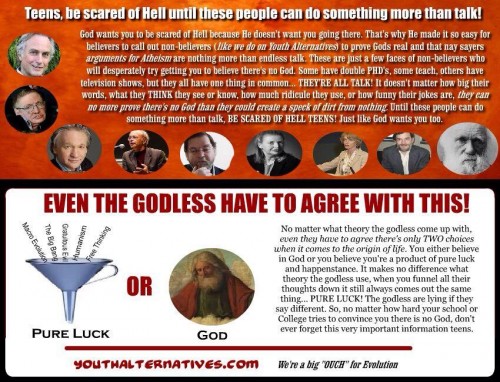Gosh, where do the kooks get their money? Watch this slick trailer for a fancy new “science” documentary called The Principle. There’s Michio Kaku…oh, wait, he’s always getting cheerfully dragged into woo…and Lawrence Krauss? Krauss is one of those hard-headed rational types who wouldn’t be a knowing part of any nonsense. But just watch, and the subject of this movie will gradually emerge.
It’s a pseudo-documentary about geocentrism. Zeno tells me he heard about on that weird Catholic zealot Michael Voris’s show. It’s being made by weird uber-kook Rick Delano, who’s sole claim to fame seems to be advocating geocentrism, and showing up in the comments of every blog that ever laughs at the subject (so don’t be surprised if he appears here).
What isn’t at all surprising is that Lawrence Krauss has already repudiated the movie.


